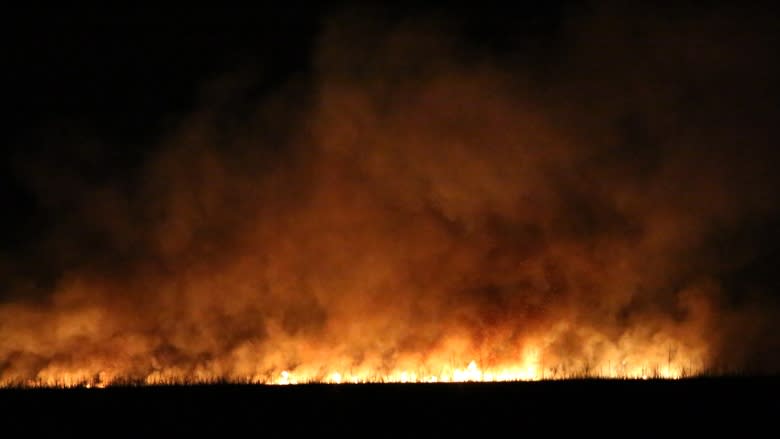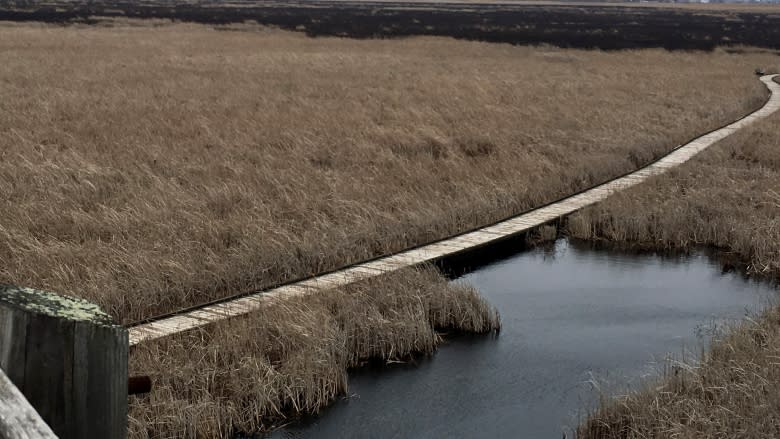Cause of Point Pelee fire changed to 'undetermined' in light of new evidence
The cause of a massive fire at Point Pelee National Park has been listed as "undetermined" after new information was provided to Parks Canada, according to fire officials.
Leamington Fire Services initially said the fire was stared by "natural causes," but on Friday deputy chief Mike Bradt said new evidence caused the classification to change.
"It was previously stated, at the time, that it could have been a natural cause, but with the information that has come forward we've decided to list the cause as 'undetermined' until investigation continues," he explained.
Fires can be caused naturally, unintentionally or accidentally or intentionally, according to Bradt, who added the OPP was on the scene the night of the fire and may be assisting with the investigation.
"All areas are being investigated at this time," he said.
No word on root cause of fire
Parks Canada refused to discuss the reasons behind the classification change. Louis Lavoie, field unit superintendent for southwestern Ontario, said the government organization doesn't want to provide any information that could lead to speculation.
"At this time, we just don't know for sure what is the root cause," said Lavoie, adding the investigation could take anywhere from days to months to complete.
Lavoie was at Point Pelee Thursday as the fire was dying down and said the scorched section stretching more than 125 hectares was "impressive."
"There's an area that's black where the fire took place," he said. "You can see it from the observation deck at the boardwalk."
Lavoie praised the efforts of the fire department and police for saving the "famous marsh boardwalk."
Marsh will be better than ever after blaze
Marshland damaged in the blaze should bounce back and actually be better off, according to Essex Region Conservation Authority biologist Dan Lebedyk, who described fire as part of an ecosystem's natural cycle.
"Every few decades you'll get a wildfire running through," he said. "We do see — very quickly — a regeneration of the marsh. In many cases, we see many more different plant species than we had originally."
The last time flames consumed part of the park was back in 1988 when lightning sparked a giant inferno.
The park was closed Thursday, but was open from 7 a.m. to sunset on Friday.



